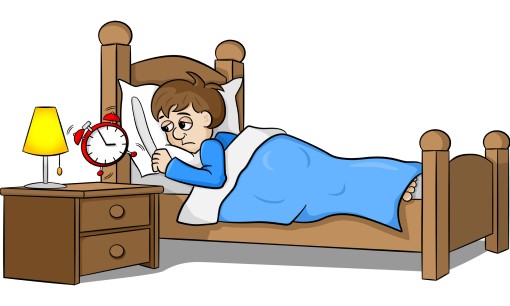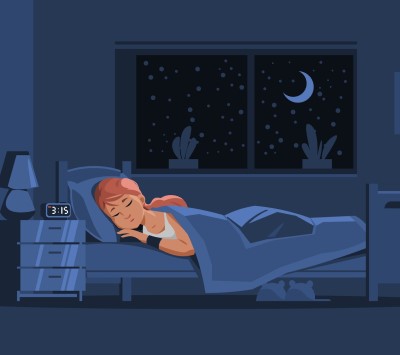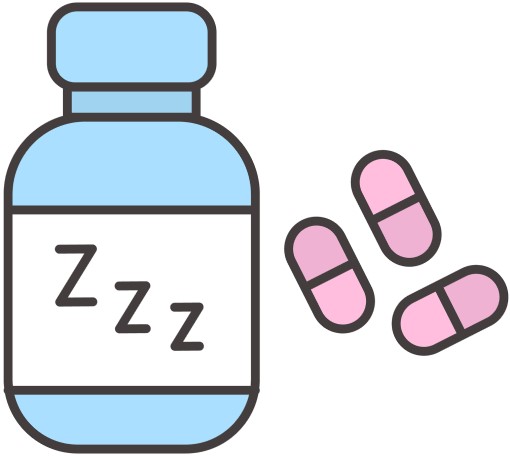
12 Practical remedies worth a try if you’re worried about retirement and can’t sleep
By Jason Wooden, PhD | July 9, 2023
Surveys reveal millions are likely losing sleep over retirement worries due to uncertainty surrounding finances, housing, healthcare, and quality of life. Fortunately, there’s plenty you can do including sleep hygiene, exercise, relaxation aids, seeing a doctor, sleep meds and sleep counseling. For more peace of mind, do what you can to improve your retirement prospects even if it’s baby steps.
Millions likely losing sleep because of retirement worries…
You’re not alone if you’re losing sleep because things aren’t looking so great for retirement. With all the economic uncertainty, sky high inflation, and an affordable housing crisis, there’s plenty to keep us up at night.
In a recent Gallup poll in the US, 71% of adults said they were worried about being able to fund their retirement. Surveys suggest as many as 40% of older workers are losing sleep over their financial situation.
I’m guessing it’s the same in many other countries.
So, what’s keeping folks up at night?
Among the retirement worries people share online are:
- won’t ever be able to retire
- running out of money and paying the bills
- where will I live?
- healthcare
- being wiped out by a medical crisis
- worried about the kids and not wanting to be a burden
- boredom and loneliness
- quality of life and lifestyle

Like I said, there’s plenty of things to worry about and it’s no surprise if it’s causing sleepless nights.
All the same, there’s too much at stake if you find you’re regularly losing sleep over your retirement prospects. You still need to make the best of each day which means you need your sleep.
Let’s take a look at what you’re up against and what you can do about it.
What all the worry is doing to your sleep, health, and job performance
It’s no wonder retirements worries is making it harder for people sleep.
Stress and anxiety are two of the BIGGEST sleep killers.
A racing mind makes it hard to drift off to sleep.
Occasional stress and anxiety is a normal thing. It’s when it keeps happening that you can really get in trouble, especially at bed time.
As you get more and more stressed out, your body turns on the fight-or-flight response and pumps out stress hormones designed to get you in a heightened state of arousal. Hyperarousal has been identified as a key factor for insomnia.
That’s why stress and anxiety is so bad at night – it makes it harder to fall asleep AND harder to stay asleep.
And let’s not forget all the other things ongoing stress, worry, and anxiety can do to your body.
Among the health effects are:
- digestive issues such as upset stomach or diarrhea
- heart issues
- worse aches and pains
- headaches
- weight loss or gain
- sexual issues
Sleepless nights and sleep-deprived days are tough enough. It can be a real downer when you add other health issues to the mix.
So, again, there’s too much at stake to accept the status quo.
Poor sleep makes for miserable days.
You also don’t think as clearly and have a harder time functioning whether it’s at home or on the job. You’ll also be at risk for a myriad of health issues and depression.
Lastly, keep in mind there’s a strong link between sleep and job performance – the poorer you sleep, the poorer your performance at work.
You really owe it to yourself to get the best possible sleep you can every night.
Practical remedies worth a try if you’re losing sleep over retirement worries
Now, we finally get to the good news – there’s plenty you can do to get your sleep back on track if retirement worries keep you up at night.
Depending on your situation, there are sleep remedies you can try right way while others might take a bit of time to bear fruit:

1) Improve your sleep hygiene
Why make sleep even harder than it has to be? To give yourself a chance for the best possible sleep every night, make sure you’re following the rules for healthy sleep, known as sleep hygiene. It’s the everyday habits that can make or break sleep.
For better sleep hygiene, you should:
- Wake up and go to bed at the same time every day
- Physical activity
- Avoid naps
- Avoid large meals, alcohol, and stimulants such as caffeine before bedtime
- Maintain a bedtime routine
- Avoid TVs, laptops, and other electronics near bedtime
- Keep your bedroom dark, cool, quiet, & relaxing

2) Going on a media diet
A steady diet of breaking news can leave you wired up and feeling hopeless. So much of it is bad and out of your control.
Trying unplugging (or at least cutting back) on your news feeds from TV, Facebook, and Twitter. Be sure to avoid news media in the hours before you go to bed.
Fear not, the news will be there waiting for you in the morning…

3) Stress management
Since stress is such a huge factor for sleep, it’s important to do whatever you can to keep the stress down so you’re not as wound up at bedtime.
Learn more:
Stress Management (HelpGuide.org)
Six relaxation techniques to reduce stress

4) Exercise
Did you know that physical activity triggers the release of endorphins and other chemicals that improve mood? It’s great for stress, anxiety, AND depression.
Also, studies have shown that physical activity can help people fall asleep faster, sleep more deeply, and sleep longer.
So, do something physical everyday whether it’s a walk at the park, swimming at the pool, a bike ride around the neighborhood, or just dancing to your favorite music.

5) Find some sleep-friendly ways to pass the time
When you’re struggling to fall asleep, it’s important to avoid doing anything that will get you more wired up and make the transition to sleep even harder. Find some sleep-friendly things to do for those nights you can’t sleep because you’re worried about retirement.
It could be light reading, working on a puzzle, or listening to quiet music.
More ideas: 18 Fun things to do before bed that won’t wreck your sleep

6) Relaxation exercises
Relaxation exercises are a time tested way to calm the mind and body.
There are plenty of techniques worth a try:
Visualization
Light stretching
Deep breathing
Progressive muscle relaxation

8) Natural relaxation aids
There’s a wide variety of natural sleeping aids that work by fighting stress and anxiety:
Chamomile – Extracts made from dried flowers of the chamomile plant have been shown to reduce anxiety and promote relaxation.
Lavender Essential Oils – Extracts prepared from the flowers of the plant are used in aromatherapy to reduce anxiety and promote relaxation.
Valerian root extracts – have been shown in studies to help fight anxiety and promote relaxation.
Ashwagandha – One of the most powerful herbs used in Ayurvedic healing, it’s thought to work as a moderator of the body’s response to stress. The root and berry are used to reduce anxiety and calm the body.
CBD oil – so far, looking promising for anxiety in studies. CBD (cannabidiol) is derived from the hemp plant which is a cousin of the marijuana plant. Unlike marijuana, it does not contain the psychoactive THC (tetrahydrocannabinol) which causes a “high.”
Before trying out a natural remedy, it’s recommended that you check with a complementary health specialist about whether it’s right for you, possible side effects, and the best way to use it.

9) Sleep meds
As a short-term remedy, your doctor may recommend an over the counter or prescription sleep med to help you get your sleep back on track.
Keep in mind sleeping pills are not the first choice for treating ongoing insomnia due to side effects such as dependency. They may also stop working as the body builds up a tolerance to them.

10) Sleep counseling
There’s a strong connection between the mind and body. Your mind, brain, behaviors, and body can interact in powerful ways that affect health and wellness.
A specialized type of sleep counseling, cognitive behavioral therapy, can help identify and change thoughts and behaviors that affect sleep. Believe it or not, it’s one of the most effective insomnia treatments.

11) Get a check up
When was the last time you had a checkup? Too many people are unaware how many other medical issues can cause problems or worsen sleep.
Things like asthma, allergies, acid reflux and heartburn, heart issues, chronic pain, and diabetes can keep you up at night. Even some prescription drugs can affect sleep.
You may also be living with an undiagnosed sleep disorder such as sleep apnea.

12) Talk to someone
Stress, anxiety, and depression can leave you feeling drained.
And they’re also strongly linked to poor sleep. If you’re not careful, you can get into a downward spiral where one causes more of the other.
It turns out cognitive behavioral therapy has been found to be helpful for both anxiety and depression.
Take action and start doing whatever you can to prepare for retirement for peace of mind and better sleep…
Not knowing what’s going to happen in life keeps many people up at night whether it’s worries about retirement or a health crisis.
There’s something truly empowering when you take action even if it’s only baby steps.
And even if you don’t have all the answers…
There’s a peace of mind that comes when you have a clearer idea of where you stand, thinking through the options, and doing what you can.
So, focus on things you can control and do something every day to work towards a better retirement.
Depending on your situation, some things that may help include:
Taking stock
Have a clear idea of where you stand – income, liabilities, and future prospects
Getting on a budget
If you haven’t already, write out a detailed itemized budget.
Budgeting keeps money from getting wasted and makes sure it’s working towards important goals. It’ll let you know where your money is going, keep spending in check, and show you ways you can save money.
Building up your savings
Speaking of saving money, start with building up an emergency fund for unexpected expenses and then go from there.
Eliminating debt
Less debt means more cashflow down the road. Budgeting will help with this too.
Retirement planning
Knowing where you stand and what you can do on the road to retirement can make a huge difference.
Talk to a financial planner. You may be in better shape than you realize or there may be things you can do you’re not aware of. Also, now is a good time to research your options for healthcare and future medical needs.
Finally, write out a retirement budget as best you can.
Thinking about how to cut retirement costs
There are lots of adjustments you can make once you’re retired ranging from downsizing to moving somewhere with cheaper housing.
Picking up a side gig
Start thinking about part-time jobs you can do once you’re retired to earn some extra monthly cash. I have one friend who already has a side gig even though he’s not yet retired. It’s something with flexible hours he really enjoys which he can do more of down the road as needed.
You may also be interested in:
Worried about losing your job and can’t sleep? – 13 practical remedies
10 things to try if you’re losing sleep over politics
3 things to do if you’re worried and losing sleep over rising gas prices
17 Sleep-friendly ways to pass the time when bored in bed
How to stop waking up late for work
What to do if you’ve slept through your alarm for work
What to try if you’re fall asleep during meetings
11 Practical remedies worth a try if you’re feeling tired after retirement
Sources:
Americans’ Outlook for Their Retirement Has Worsened, 2023, Gallup (Source)
Working Americans Aged 45 + Say It Will Take $1,100,000 Saved to Retire Comfortably, but Only One in Five Will Get to a Million, 2023, Schroder Investment (Source)
Does anyone else ever panic that they won’t ever be able to retire?, 2023, reddit (Source)
Is anybody here scared to retire?, 2022, reddit (Source)
The Effects of Cortisol on Your Sleep, 2020, Psychology Today website (Source)
Hyperarousal and sleep reactivity in insomnia: current insights. Nat Sci Sleep. 2018 Jul 17;10:193-201. (Source)
The Link Between Sleep and Job Performance, 2023, Sleepfoundation.org (Source)
Exercise and Insomnia, 2020, sleepfoundation.org (Source)
Connect with us:
About Us
Better Sleep Simplified® was founded as a place for you to get clear and well-researched information.
Our goal is to make sure you know about your options so that you take action sooner rather than later.
Check us out on YouTube:
Watch and Learn
Helpful sleep tips, interesting sleep facts and statistics you want to know about
Affiliate Disclosure
This site is a participant in the Amazon Services LLC Associates Program and other affiliate advertising programs designed to provide a means for sites to earn advertising fees by advertising and linking to them.
Important: BetterSleepSimplified.com is for informational purposes only and is not intended or implied to be a substitute for professional medical advice, diagnosis, or treatment. Always consult a physician for sleep and health concerns. See additional information.

